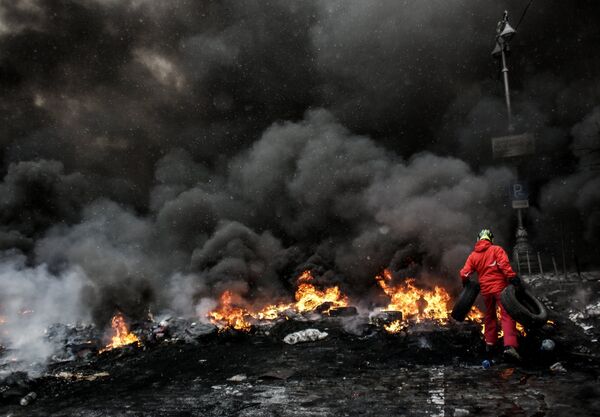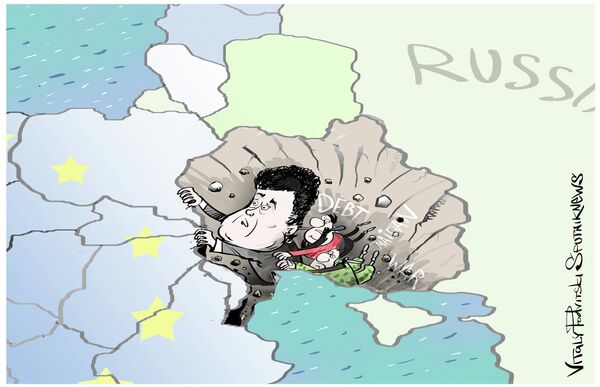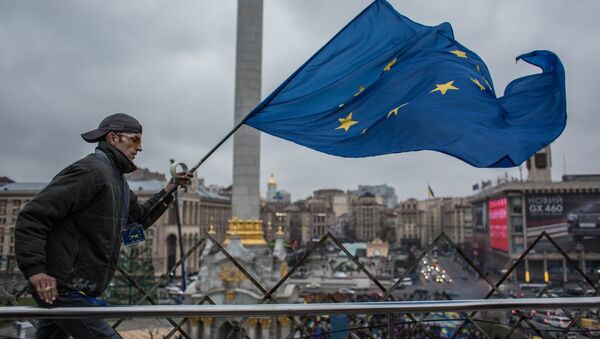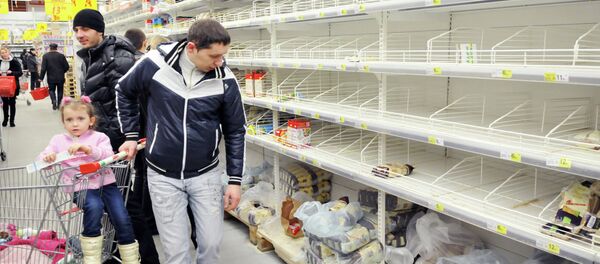Ukrainians were naïve to believe that the association agreement between Kiev and Brussels would usher in an age of careless affluence. When former Ukrainian leader Viktor Yanukovych refused to sign it, they took to the streets in what became known as the Euromaidan revolution. New Kiev authorities finalized the agreement only to give Ukraine "a shock therapy," Contra Magazin noted.

"It is becoming increasingly evident that [Yanukovych, deposed in a US-sponsored coup,] was absolutely right in his reservations" with regard to the document, the publication observed. Ukrainians are increasingly aware of this.
These changes would lead to (and have to an extent already resulted in) a radical privatization and the introduction of market-based pricing. The latter development makes it impossible for the government to offer energy subsidies, which means that ordinary Ukrainians have to pay ever soaring electricity bills. Many can no longer afford this.
"Taking into account the looming winter and the collapsing economy these steps are a death sentence for tens of thousands of Ukrainians," Contra Magazin concluded.
The agreement, hailed by the current Ukrainian leadership and Brussels, also introduced restrictions on Ukraine's main export sector – agriculture. The European Union has to tackle overproduction in the agricultural sector and it does not need competition from Ukraine.



